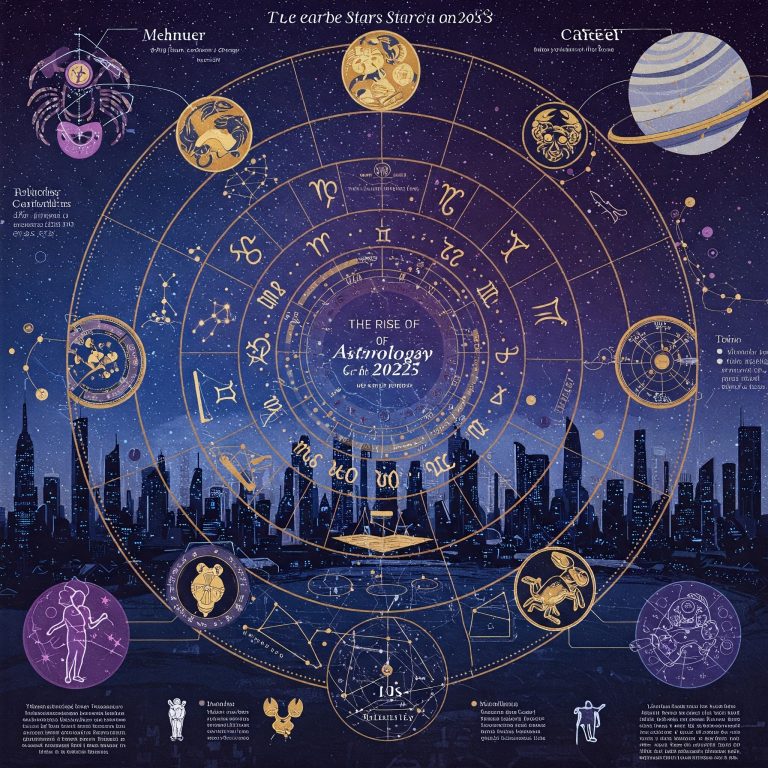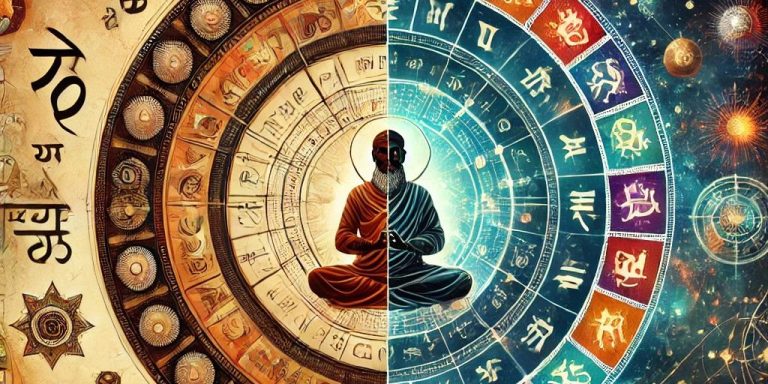Introduction
Vedic Astrology, also known as Jyotish Shastra, is an ancient system of astrology that originated in India over 5,000 years ago. Rooted in the Vedas—the sacred scriptures of Hinduism—it is considered a divine science that helps individuals understand their life’s purpose, strengths, challenges, and destiny.
Unlike Western astrology, which is based on the tropical zodiac, Vedic astrology follows the sidereal zodiac, which considers the actual positions of the stars and planets. This makes it a more precise and accurate system for astrological predictions.
The Core Components of Vedic Astrology
1. The Birth Chart (Kundali)
A person’s Kundali (horoscope) is a map of the sky at the time of their birth. It is divided into 12 houses, each representing different aspects of life, such as career, health, family, relationships, and wealth.
2. The Planets (Grahas)
Vedic astrology considers nine planets (Navagrahas) that influence human life:
- 🌞 Sun (Surya) – Power, authority, soul
- 🌙 Moon (Chandra) – Mind, emotions, intuition
- 🪐 Mars (Mangal) – Energy, courage, aggression
- 🦚 Mercury (Budh) – Communication, intelligence, business
- 🎭 Jupiter (Guru) – Wisdom, luck, spirituality
- 💎 Venus (Shukra) – Love, beauty, luxury
- 🏛 Saturn (Shani) – Discipline, challenges, karma
- ⚫ Rahu – Illusion, ambition, obsession
- ⚪ Ketu – Detachment, spirituality, past karma
Each of these planets moves through the 12 zodiac signs and influences different areas of life based on their placement in the birth chart.
3. The 12 Zodiac Signs (Rashis)
In Vedic astrology, the zodiac signs (Rashis) are:
♈ Aries (Mesha)
♉ Taurus (Vrishabha)
♊ Gemini (Mithuna)
♋ Cancer (Karka)
♌ Leo (Simha)
♍ Virgo (Kanya)
♎ Libra (Tula)
♏ Scorpio (Vrishchika)
♐ Sagittarius (Dhanu)
♑ Capricorn (Makara)
♒ Aquarius (Kumbha)
♓ Pisces (Meena)
Each sign is ruled by a specific planet and has its own unique characteristics.
4. The 12 Houses (Bhavas)
Each house in a birth chart represents a different aspect of life:
- 1st House: Self, personality, physical appearance
- 2nd House: Wealth, speech, family
- 3rd House: Siblings, communication, courage
- 4th House: Home, mother, happiness
- 5th House: Creativity, children, intelligence
- 6th House: Enemies, debts, health
- 7th House: Marriage, partnerships
- 8th House: Secrets, transformation, longevity
- 9th House: Luck, spirituality, higher education
- 10th House: Career, status, reputation
- 11th House: Gains, networking, desires
- 12th House: Expenses, spirituality, isolation
How Vedic Astrology Works
Vedic astrology is based on planetary positions and their movement (transits), as well as Dasha periods (planetary cycles). Astrologers analyze the placement of planets in a person’s birth chart to predict their career, relationships, health, and future events.
Benefits of Vedic Astrology
Self-Awareness: Helps you understand your strengths, weaknesses, and life purpose.
Career & Finance Guidance: Provides insight into suitable professions and financial stability.
Love & Marriage Predictions: Helps in finding a compatible life partner.
Health & Well-being: Offers remedies for health-related challenges.
Spiritual Growth: Guides individuals on their karmic journey and spiritual path.
Final Thoughts
Vedic astrology is not just about predictions—it is a tool for self-improvement and spiritual growth. By understanding your birth chart, you can make better decisions, align with cosmic energies, and navigate life with greater clarity.


